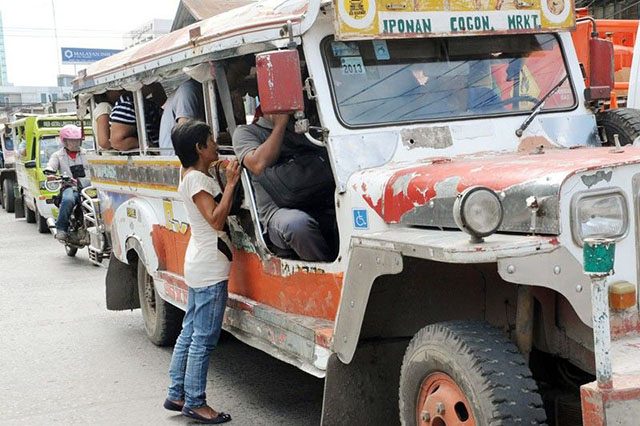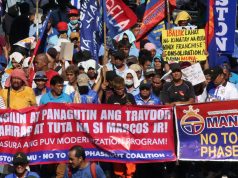A video clip on Twitter of how girl power among passengers prevented a harassment incident in a jeepney made rounds on the micro-blogging platform.
It was first posted by Twitter user @69caIum on April 13. Conversations on how women should protect one another on such situations ensued after.
The 45-second video showed a man leering at a woman who sat one passenger away from him.
SHOUT OUT NGA PO PALA DITO SA MANYAK NA TO!!!!!!! pic.twitter.com/MRKTR1oWgP
— َmalia (@69caIum) April 13, 2019
When he tried to sit beside her, she and another woman shifted to the other side and a third female passenger transferred to their side.
The Twitter user also shared snapshots from the recording that bared the face of the man.
The identity of the user who captured the video and the location where it was shot were not indicated.
Aside from the praises the post earned, several users noted how women have to adjust and work together to be safe in public.
“I hate how years of this treatment hot-wired us into always looking over our shoulders for danger while pervs perpetuate this behavior and think it’s okay,” Twitter user @migssangtian said.
SHOUT OUT NGA PO PALA DITO SA MANYAK NA TO!!!!!!! pic.twitter.com/MRKTR1oWgP
— َmalia (@69caIum) April 13, 2019
Meanwhile, Twitter user @jaicabajar said that this showed how the expression “boys will be boys” is wrong.
SEE HOW WOMEN ADJUST JUST TO PROTECT EACH OTHER AND YET WE STILL BLAME THEM BECAUSE bOys wILL bE bOys? Kung manyak ka, manyak ka talaga. https://t.co/iCCZ8vDDlD
— Jai Cabajardashian (@jaicabajar) April 16, 2019
Public transportation in the Philippines poses risks of harassment to passengers, particularly women, aside from other crimes like petty theft.
Last March, a female student shared on Facebook how she was woken up because someone was touching her private part.
It soon prompted other women to share their harrowing tales of sexual harassment on public transportation vehicles.
Concrete laws needed
The Philippine Commission on Women defines sexual harassment as “any unwanted sexual attention.”
This can be in the form of verbal and physical acts. Verbal harassment includes lewd comments and offensive jokes while physical manifestation consists of touching, brushing up against the victim and rape.
The government has yet to pass a specific measure that imposes penalties against forms of sexual harassment in public, including when riding jeepneys, buses and other PUVs.
Senate Bill 1326 or the “Safe Streets and Public Spaces Act of 2017” that aims to penalize public or street harassment such as catcalling, leering and wolf-whistling in public places has not yet been signed into law.
In Section 3, it is stated:
“Public spaces shall include but are not limited to, streets and alleys, public parks, schools, government buildings, malls, bars, restaurants, transportation terminals, public markets, and public utility vehicles,”
The Anti-Sexual Harassment Act of 1995 only covers people with authority in the workplace, schools and training institutions.
The proposed measure that will repeal this, House Bill 8244, also covers the same situations but with stiffer penalties.
Quezon City and Manila, meanwhile, had banned catcalling and similar forms of harassment in 2018.










